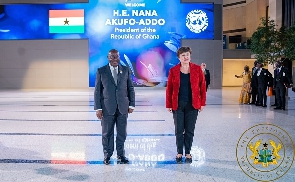Kristalina Georgieva, head of the International Monetary Fund (IMF) has signaled that her outfit has approached creditors of debt-distressed nations to work towards debt resolution. IMF managing director Kristalina: “Third of world economy to hit recession in 2023” - “ We are working hard to push for debt resolution for #Ethiopia #Zambia #Ghana #Chad #Lebanon #Surinam #Srilanka ” Time to buckle up the belts tighter more than ever. #Urgency pic.twitter.com/yJNPjrbG57
According to her, the main premise for their push is urgency relative to the need to curb the chances of debt distress contagion at a crucial time for the global economy.
Debt Resolution involves a process of reaching an agreement with your creditors to satisfy the debt for a lesser amount than what is owed.
In an interview with an American broadcaster, CBS, Georgieva listed the currently distressed nations which included Ghana, three other African countries as well as Lebanon, Suriname and Sri Lanka.
“So far, the countries that are in debt stress are not systemically significant to trigger that crisis (debt distress contagion globally), let’s just look at the map. Which are these countries, Chad, Ethiopia, Zambia, Ghana, Lebanon, Suriname and Sri Lanka.
“It is very important for their people that we find a resolution to the debt problem but the risk of contagion is not as high,” she assured.
She, however, stressed that if the risk continues to grow with 25% of emerging markets treading in debt distress, the IMF will have to reset some of its figures and take more drastic steps to save the global economy.
Ghana confirmed its debt-distress stature last November in Minister of Finance Ken Ofori-Atta’s budget presentation. Government has also arrived at a Staff-Level Agreement for a US$3 billion facility to help sustain the economy.
The Paris Club is an informal group of creditor nations that meet each month in the French capital, to find workable solutions to payment problems faced by debtor nations.
The original eleven members have now become twenty: Australia, Austria, Belgium, Canada, Denmark, Finland, France, Germany, Ireland, Israel, Italy, Japan, the Netherlands, Norway, Russia, Spain, Sweden, Switzerland, the UK, and the USA.
SARA
Business News of Thursday, 5 January 2023
Source: www.ghanaweb.com













